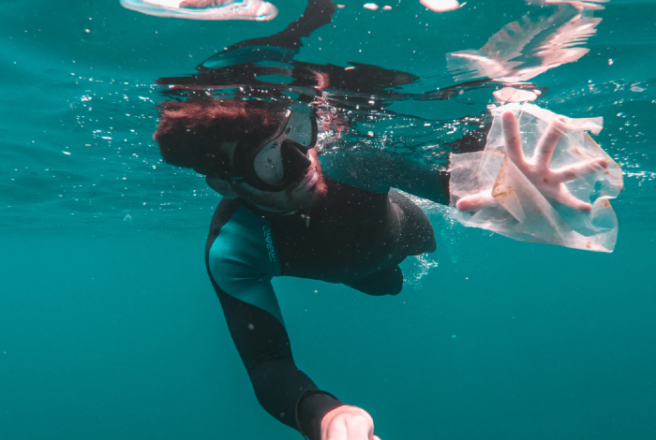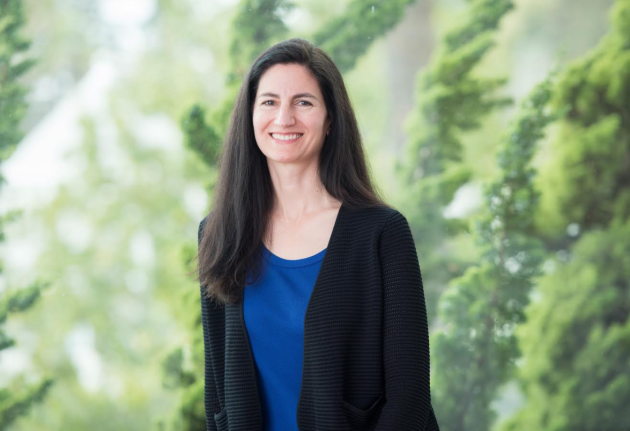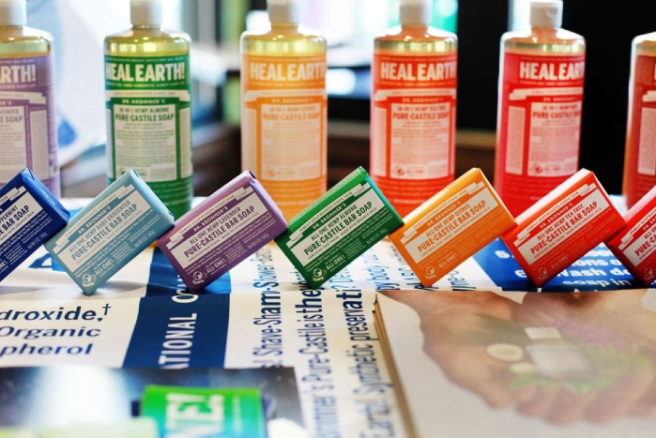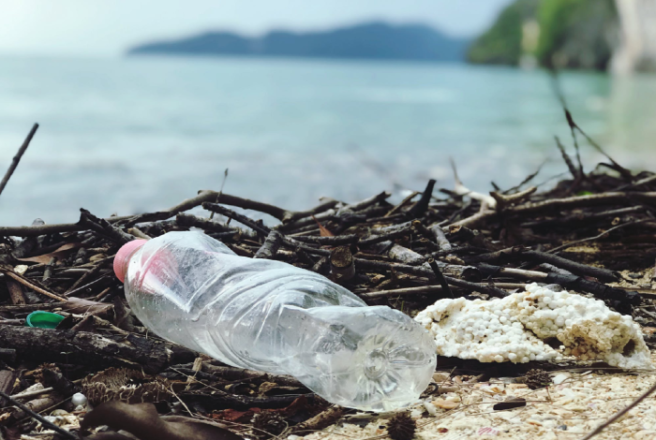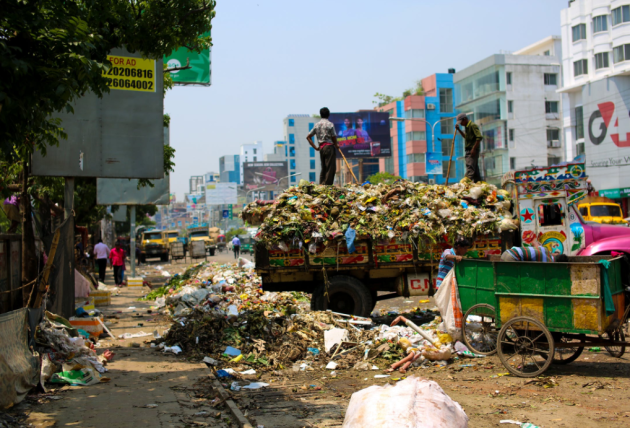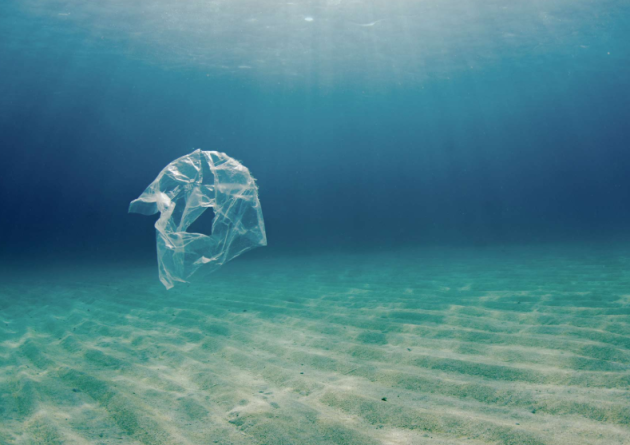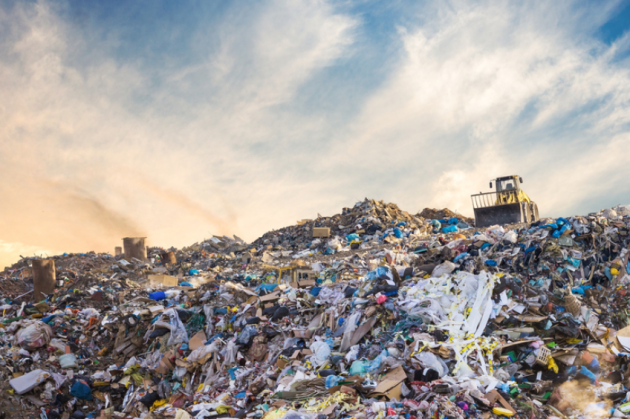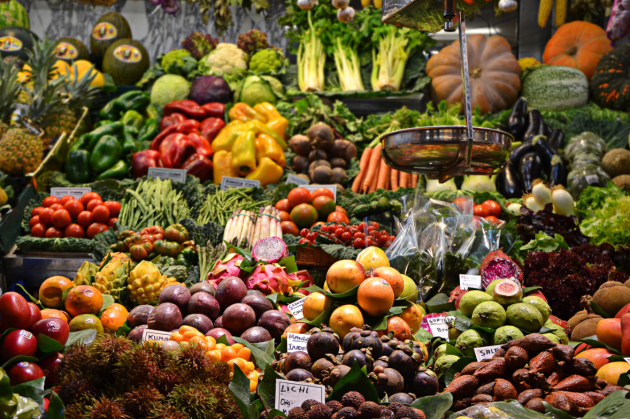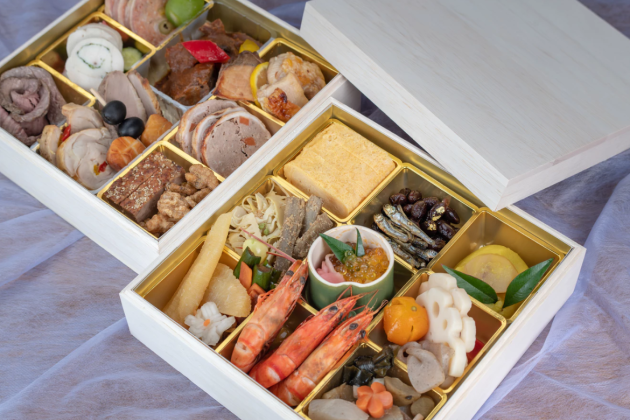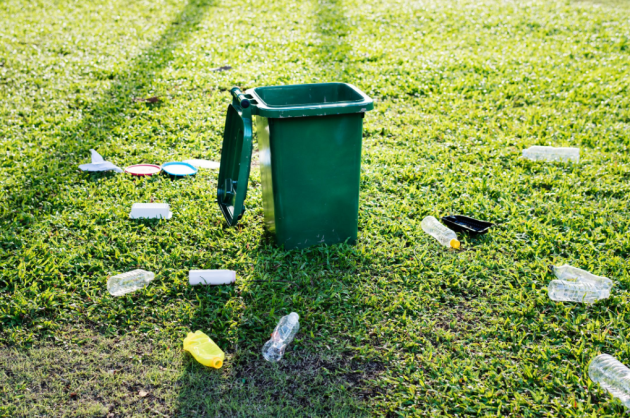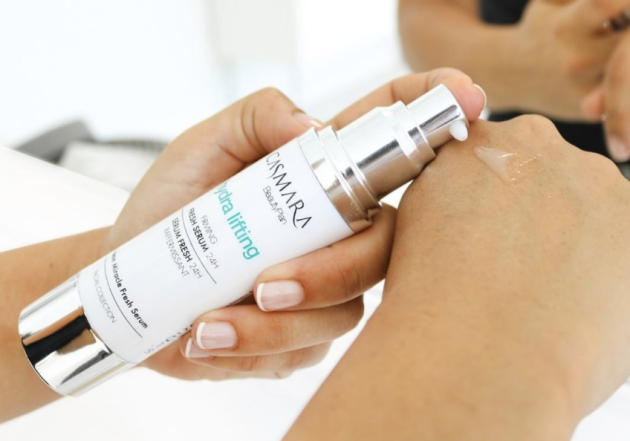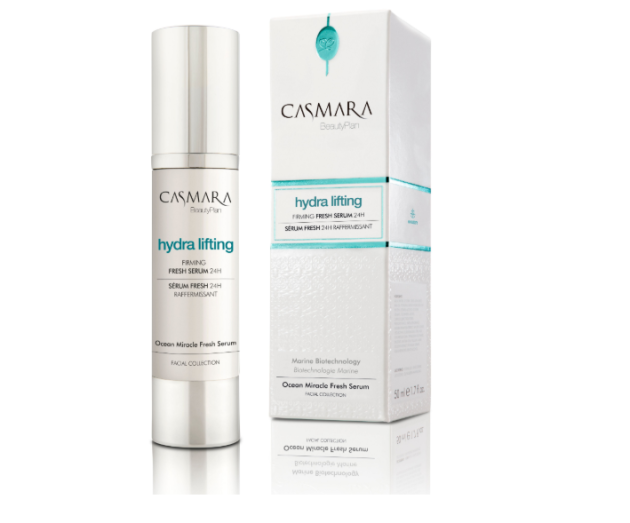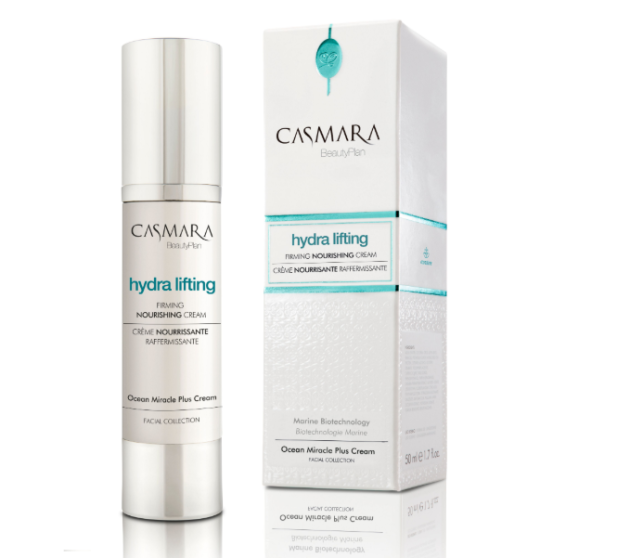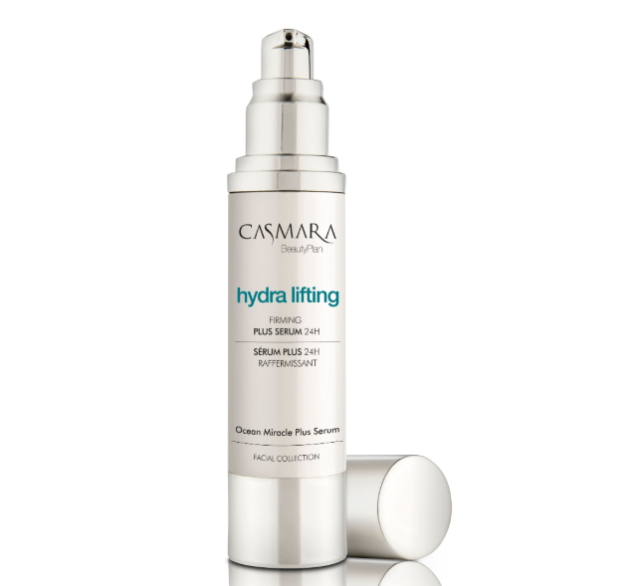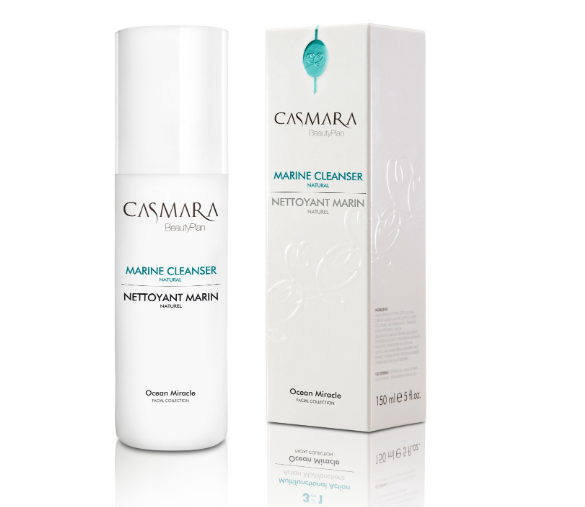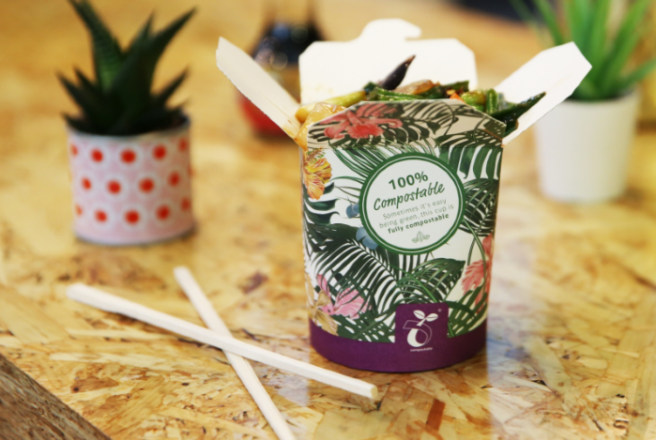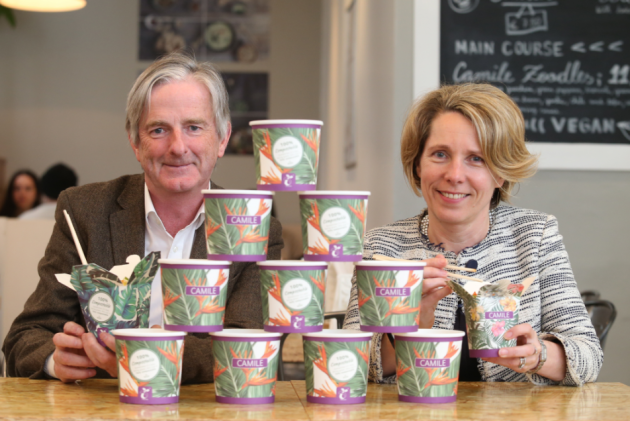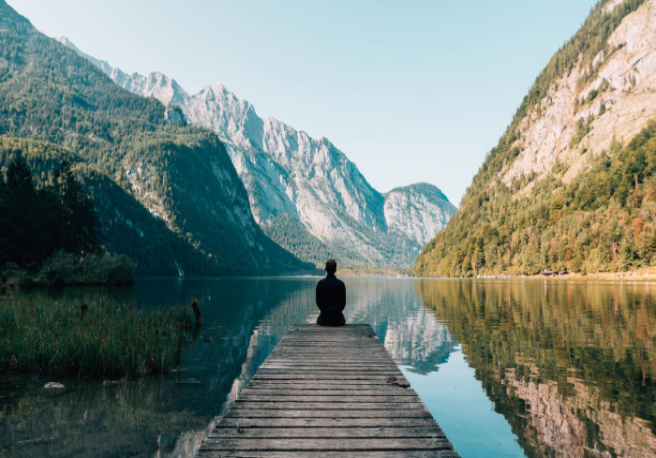
How to travel in the most environmentally-friendly way
Recent reports circulating in the media on the disastrous effects of humankind on the planet and resulting climate change are pretty terrifying.
The greenhouse effect includes rising sea levels, famine and climatic alterations, and is caused by the emission of certain gases into the atmosphere such as man's use of fossil fuels.
The latest findings by the United Nations are alarming, at worst. The sweeping assessment has concluded that humans are transforming Earth’s natural landscapes so extensively that as many as one million plant and animal species are now at risk of extinction.
Populations worldwide depends on these threatened ecosystems.
Place the IPBES report next to the IPCC 1.5 C report and you have a full picture of a Planetary Emergency. Science cannot be more clear. The World needs to Transform. Now. https://t.co/apNJqRr9lW
— Johan Rockström (@jrockstrom) May 6, 2019
Transportation is imperative to this problem and bears responsibility for one fifth of all carbon dioxide emissions currently. Cars and lorries contribute 80-90 percent of all transport emissions, and traffic congestion is drastically worsening in Dublin.
It's time that Ireland declared a national emergency on climate change, and we found solutions. How can we make small but significant changes to our daily lives for the sake of the planet? Diet, travel, fashion and plastic; four key areas.
Your life can't totally cease to contain any fun, and why shouldn't you still be able to travel despite the troubling findings? We've made a comprehensive list of ways to travel in an eco-friendly, guilt-free way. The planet will thank you for it…

1. Travel by train, if possible, or boat.
Trains are more energy-efficient than other modes of transport, and can easily adapt to different sources of energy. Renewable energy is the key, so using cars and planes for travel can cause problems. Of course, we in Ireland are surrounded by water and generally have to fly everywhere, but at least the first waste-free plane journey has taken place.
Steps are being taken to reduce the plastic intake on flights; Quantas operates the 'world's first zero-waste' airline journey, which is SO exciting. They disposed of all their waste via compost, reuse and recycling.
Why not try inter-railing as a means of travel? The European journey tickets offered by USIT feature some great offers at low prices.
Ferry journeys also save a lot more energy than flying, though many people find long journeys on the sea unnerving.
2. Ride that bike and give your planet a like

As well as saving you a rake load of cash on transportation, cycling is an amazing way to improve your general health and fitness as well as reducing your carbon footprint.
By riding your bicycle for just four miles, you stop roughly 15 pounds of pollutants from being released, in comparison to car journeys.
Places like Amsterdam, Barcelona, Oslo, Prague and Tuscany offer some incredible views and cycling tours. From riding your bike through the Italian countryside to pedalling the coastal roads of France, you're seriously missing out if you think bikes aren't a brilliant holiday opportunity.
They contribute zero negativity to the planet, yet can get you to some beautiful places, so it's worth giving it a go.
3. Do you ever feel, like a plastic bag, drifting through the wind….

DITCH those plastic bags, it's easier than ever. Plastic bags can take up to 500 years to biodegrade, so why not take a reusable bag with you when you're grabbing goods or groceries?
You can get some gorgeous tote bags made ethically, and are perfect if you want to support independent artists while making a moral statement.
4. If you can, try to book non-stop flights
It’s actually the takeoffs and landings that create most of a plane's carbon emissions, so by only booking one flight to a destination rather than two or three, it saves energy.
Studies have found that stops can increase emissions by a shocking 35 percent per person, all because of the takeoff.

5. Shame on you if you still buy plastic bottles
Okay, granted sometimes it's necessary to buy plastic water bottles in countries which have undrinkable tap water. We've all been there, just desperately trying to avoid getting a stomach parasite in some remote part of Asia.
If you're in an area that has tap water freely available and it's drinkable, you have no excuse not to carry around your own water bottle to refill it.
Considering the news that, by 2050, the world's oceans will contain more plastic than fish., we definitely need to reduce our plastic water bottle use.
6. Ask if your hostel, Airbnb or hotel has a recycling policy
If they don't have one, why not leave a comment on their feedback cards asking them to start one?
If you can find a nearby recycling area with bottle bins, etc, try to bring your rubbish with you to dump somewhere eco-friendly. You can also quiz your hostel or hotel on their policies regarding issues like solar power, wind turbines, rainwater harvesting, energy-efficient lighting, and low-flow toilets.
7. Carpool with your pals

Road trip, anyone? Carpooling with friends or family is a big method of reducing your pollution contribution. It brings down the volume of vehicles on the road, which helps lower emission rates.
It's also a lot more fun than embarking on road trips by yourself, with nobody in the car to appreciate your killer Spotify playlists…
8. Get that Keep Cup out at all times, people
Nurse your Keep Cup like it's your baby, gals. If you carry it with you in your bag (there are foldable ones that barely take up any space too), you'll cut down on the amount of cardboard takeaway coffee cups you use.
While some of these cups and lids are recyclable, many of them aren't and cause needless harm to landfill sites.

9. Keep the energy down
Treat your hostel or hotel like you would at home; turn off lights whenever you can, switch off appliances like a television or kettle, don't use clean towels when you have a perfectly good one already, take shorter showers if possible. Showers use 10-25 gallons of water, but baths use up to 70 gallons, so choose showers.
Of course, a holiday is supposed to be relaxing. Treat yourself, but keep in mind that the planet needs treating too. Eating and drinking local food also cuts down on the travel mileage of your meal, instead of having meals or beers which have been transported from halfway across the world.

10. Wildlife lover
If you're hiking or travelling in protected sites, make sure not to wander off the beaten track and risk endangering more species of plants and wildlife.
When in another country, it's so important to respect the ecosystems there and do your research before the trip. Especially with snorkelling and scuba diving, take caution with disrupting coral reefs.
Know the laws for example about hunting, or trespassing on specific grounds. NEVER touch or feed animals you meet along the way, unless it's in a protected area or you're visiting an animal sanctuary alongside knowledgable guides.

Don't visit tourist sites which cause animals distress or harm, like elephant grounds in Thailand which allow you to ride the animals or walking with lions.
Do your homework before visiting anywhere involving animals to ensure there are no cruel practices.
You can even adopt an animal safety through the correct websites, and give them some love. by sponsoring their care.

11. Walk this way
If you can walk around cities or countrysides on your holidays, make sure to try and do as much as you can on foot. Walking tours of cities are always brilliant for discovering the history of the places you are staying in, and don't waste any money or energy on transport.
Walking also gives you bonus health benefits which extend beyond the environment. Reduce your risk of diabetes, osteoporosis, cancer and heart disease by walking only 30 minutes every day, at home or abroad.
12. Beep Beep: Electric Cars
Electric cars produce zero emissions during your travels, but can increase a power plant's emission when charging. The only issue with them is their production, which takes place in factories often powered by fossil fuels. This actually means the vehicle has already caused pollution before hitting the roads, but if the factories started using renewable energy, this could all change.
Make sure to do the research when it comes to your choice between electric cars or diesel powered machines.

13. Reduce plastic in your shopping habits
Try your best not to buy goods from major corporations which use unethical worker policies and produce large amounts of plastic waste. It's important to support independent companies and eco-friendly, ethical shops.
Research online before you travel somewhere new about the location's best shops and companies for the environment, and get groceries that aren't pre-wrapped in plastic. Carrier bags are ideal for loose fruit and vegetables.
14. Bamboo toothbrushes and natural toiletries
It's cheap and cheerfully easy to buy a bamboo toothbrush instead of a plastic one, which takes 400 years to break down in landfill. Holland and Barrett sell a great range, and you can also switch to natural shampoos and deodorants.
Irish brand Indeora sell a beautiful-smelling spray-on deodorant (vanilla, YUM) and Lush is famous for it's bars of shampoo and skincare products using either zero packaging or 100 percent recycled packaging.
15. Mini carrier fans
This was an absolute GOD-SEND when I travelled Asia (50 degrees Celsius, permanently). Instead of using a monumental amount of air condition, try limiting your energy consumption by just using battery powered mini-fans.
They work insanely well if you pay a tad bit more for a decent brand, and last for ages too.
16. Break up with your make-up
We highly recommend buying reusable make-up pads or remover face cloths, because make-up wipes are incredibly harmful for the environment.
They usually end up in landfill, or the ocean, and don't break down well. More and more brands are releasing their machine washable face cloths, buy enough to keep you going and they'll last for years.
Did you know that 80% of the blockages in UK sewers are attributed to wipes? Try these #BeautyBOSS-approved, eco-friendly alternatives to make-up wipes instead: https://t.co/jWXyc74zSc pic.twitter.com/CRgqUdtKha
— Sunday Times Style (@TheSTStyle) February 26, 2019
17. Paper planes
If you're handed leaflets or paper maps during your trip away, either hang on to them or return them to the companies so that they can be re-used.
Whatever you do, don't let them just get dumped on the street, They could be useful for someone else, so why waste them? Try to use Google Maps instead of buying paper maps, if you can.
18. Waste not, want not.
Hang on to any unused shampoos or toiletries that are provided to you by hostels or hotels. They most likely just end up in the bin, which in turn ends up in MORE landfill.
Also, if you're having some sexy fun times abroad with your significant other or just feel like a spontaneous summer fling, why not try using vegan condoms or eco-friendly latex? Greenpeace have a great article about eco-friendly sex. No, seriously…
You can even reuse the plastic containers or bottles for another purpose. Many ethical brands allow you to fill up your plastic bottles with their products to reduce waste.

19. Fast fashion
Many of us can't resist the temptation to buy a whole new wardrobe for our summer holidays. Bear in mind, most holidays are only a week or two long, out of 52 in the entire year.
Try to refrain from buying brand new clothes unless you absolutely need them. Most high street brands like Penneys, Zara, Missguided, PrettyLittleThing, H+M, Boohoo, Berskha and Pull and Bear don't use ethical working conditions, and don't pay their employees a living wage.
The textiles industry is also the second biggest polluter of water on earth, and needs to massively reduce ASAP. Try going for ethical brands, charity shopping or vintage clothing instead of getting brands new threads. Depop is a brilliant app for buying used but stunning clothes and giving them new life. You can also put your own clothes up for sale.
We have a new website, a new look and a plan to grow the movement for ethical fashion even more in 2019. We've revamped the journal too, so that you can read more of our news, tips and guides: https://t.co/1l21eb7Ktu pic.twitter.com/CvMIJZpLeI
— Good On You (@GoodOnYou_App) February 11, 2019
Good On You is a great website which can tell you if your favourite shops are ethical or eco-friendly, so give it a go.
20. Local loving
Try to seek out indigenous artisans, because if you shop from them rather than a typical assembly line, your money goes directly towards feeding that person's family. Do your best to ensure that your money doesn't go towards tourist traps that don't pay the workers properly.
If you keep up to date on foods, such as those containing palm oil, you can also avoid harmful products made in unethical circumstances. Avoid meat, especially beef, if you can. The World Wildlife Fund have loads of information on their website along those lines.
It's our duty to protect the environment from even more harm, before it's too late. Be conscious on your travels, sustainability benefits everyone on earth!








